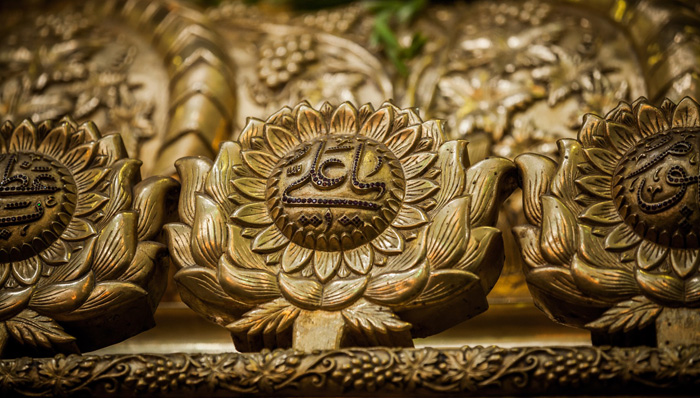Hussein Al-Rumaithi
Within the first ten days of Month of Ramadhan, Shia Muslims around the globe commemorate the death of Prophet Mohammad’s uncle and guardian, who is also the father of Imam Ali. The personality of Abu Talib is among the most oppressed in the early Islamic era, as his high status in Mecca among the Quraysh tribe was jeopardized for his defence on behalf of Prophet Mohammad. Defending his nephew and announcing his submission to the religion of Islam led to him being exiled alongside Prophet Mohammad and other Muslims in the Valley of Abu Talib, on the outskirts of Mecca.
However, the greatest oppression and injustice against this great man was done to him after him death in many years, and by individuals and groups claiming to be Muslims and followers of Mohammad’s faith. According to majority of Sunni Islam sources, and especially the sources traced to Umayyad dynasty Abu Talib was not a Muslim, he died as a non-believer and he will end up in Hell in the Hereafter.
Although these claims might seem to be politically motivated, yet the grudge and hatred toward the Prophet and Imam Ali is clear and evident. Primarily, having the problem raised by a non-believer distorts the image of Prophet Mohammad, since it would enable the Umayyad clan and others to put forward rouge claims about Mohammad’s childhood and ultimately his infallibility. In addition, Abu Talib is the father of Imam Ali. Ali is the man, who was held dear to Prophet Mohammad, married his daughter, and later chosen as the rightful successor during Ghadir sermon. Therefore, it would be rational decision to distort anything that is related to Imam Ali and his life, even if it affects the Prophet himself.
According to many Islamic and Pre-Islamic sources, Abu Talib and all Bani Hashim’s members were not idol worshipers. It is believed that Abu Talib, his father Abdul Muttalib and his brother Abdullah (Prophet Mohammad’s father) and their ancestors were all followers of Abraham’s faith, which the Quran calls Hanif. The followers of this faith were monotheists and they believed in only one God and that was the God of Abraham, Noah and Adam.
In addition, according to Quranic verses and specifically the purification verse: “Allah intends only to remove from you the impurity of sin, O’ people of the Prophet’s Household, and to purify you with extensive purification.” (33:33), the linage of Prophet Mohammad and his direct ancestors cannot non-believers or idol worshipers. The 219th verse of Quran’s 26th chapter indicate: “and your movement among those who prostrate.”
The genetically movement of Prophet Mohammad within those men and women (his ancestors), who prostrate only mean that, all of them were believers in Allah and the true religion and faith. This being said, Abdullah (father of Prophet Mohammad) was also accused of being a non-believer, which comes to raise the following question: How would the Quran call Abdullah (the biological father of Prophet Mohammad) “those who prostrate”, if he was not a believer? In addition, the sequence must continue, which means even Abdullah’s father (Abdul Muttalib) was a believer as well, and so forth.
Nevertheless, the guardian of Prophet Mohammad, who raised him for majority of his life cannot be a non-believer. How would the enemies of Mohammad take advantage of the fact that he grew up under the wing of a believer. Doesn’t he need a nurturing environment for devotion and worship, and as agreed upon by all sects, Prophet Mohammad was never a polytheist or an idol worshiper. In addition, According to Shia doctrine Abu Talib, who is the biological father of Imam Ali must also be a believer.
The same Quranic verse about movement within those who prostrate applies to Imam Ali, as the rightful successor of Prophet Mohammad must be among those purified by Allah. Therefore, his father was a believer, submit to Islam and gave his allegiance to Prophet Mohammad during the early days of Mohammad’s prophecy.







Comments